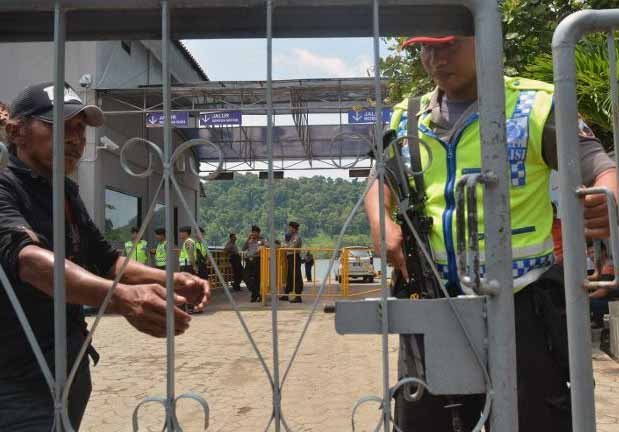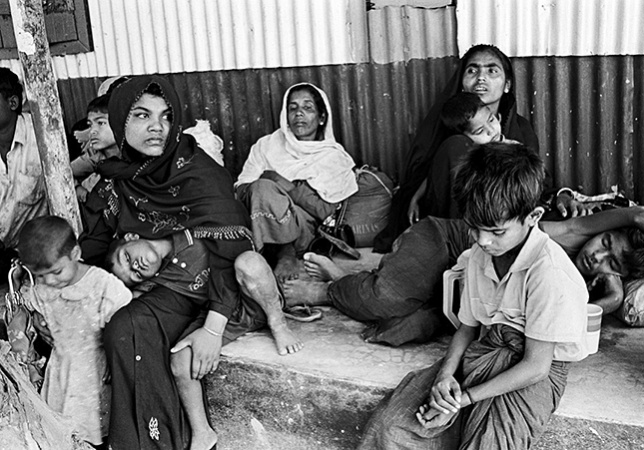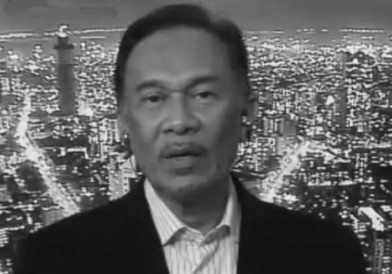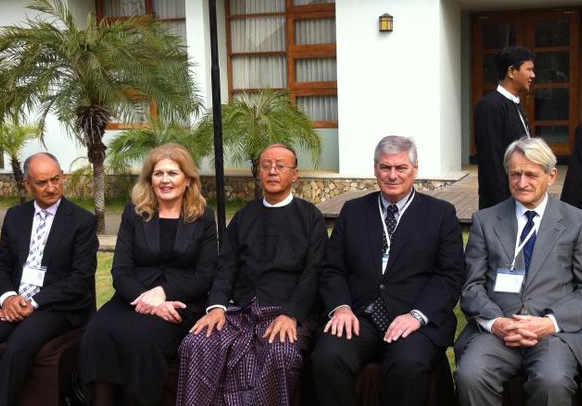
Mar 6, 2015 | News
The ICJ today expressed its dismay that the Singapore Court of Appeal, in a judgment issued on 4 March 2015 declined to declare caning, a painful form of corporal punishment, to be unlawful.
The administration of caning violates the absolute prohibition of torture and cruel, inhuman or degrading punishment under international law.
Despite this prohibition, the Court of Appeal determined that any international legal prohibition had no effect on Singapore, since the legislature had not made it part of the country’s domestic law.
The ICJ emphasized that Singapore’s failure to prohibit caning in its own national law in no way makes caning a lawful act.
Under international law, caning remains wrong and illegal, irrespective of the country’s domestic arrangements.
The Court of Appeal also ruled that caning, administered as a form of judicially imposed punishment in Singapore, does not amount to torture.
The Court of Appeal stated that caning did not “breach the high threshold of severity and brutality that is required for it to be regarded as torture.”
The ICJ notes that the international prohibition against ill-treatment extends not only to torture, but also to cruel, inhuman and degrading treatment and punishment.
The ICJ considers that caning constitutes both types of ill-treatment.
The ruling was issued by the Singapore Court of Appeals in the case of Yong Vui Kong, a 26-year old man who appealed against his sentence of 15 strokes of the cane and life imprisonment imposed as a punishment for an offence under the Misuse of Drugs Act.
Upon his conviction in 2011, Yong Vui Kong had initially been sentenced to death.
Following changes in the law and an application for re-sentencing to the High Court, his sentence was modified in 2013 to life imprisonment and ‘15 strokes of the cane’.
In his appeal, which was dismissed by the Court of Appeal, Yong Vui Kong challenged this sentence on several grounds, including that caning constitutes torture, which is prohibited under international law.
“The Court of Appeal’s ruling is out of step with Singapore’s obligations to prevent, prohibit and punish all forms of torture and other cruel, inhuman or degrading treatment or punishment. International human rights bodies have made clear that caning and other forms of corporal punishment violate the absolute prohibition of torture and other cruel, inhuman or degrading treatment or punishment. As such it must be prohibited,” said Emerlynne Gil, International Legal Adviser for Southeast Asia of the ICJ.
Laws in Singapore that permit the imposition of corporal punishment are inconsistent with Singapore’s obligation to prohibit torture and other ill-treatment at all times and in all circumstances.
Consequently, in 2011 the UN Committee on the Rights of the Child asked Singapore to “prohibit unequivocally by law, without any further delay, all forms of corporal punishment, including caning, in all settings”.
In addition, when Singapore went under the Universal Periodic Review of its human rights record before the UN Human Rights Council in 2011, several States recommended that the authorities abolish all corporal punishment, including caning.
The ICJ also emphasizes that all forms of torture and other cruel inhuman or degrading treatment are absolutely prohibited by customary international law and international treaties binding on Singapore, including the Convention on the Rights of the Child (CRC) and the Convention on the Rights of Persons with Disabilities (CRPD).
The prohibition against torture is also a peremptory norm of international law, as recognized by numerous legal authorities and by all States in repeated UN General Assembly resolutions.
The peremptory character of the norm means that it overrides all other laws, international or domestic. The Court of Appeal dismissed any effect that the peremptory character of the prohibition might have on its administration in Singapore.
The ICJ calls on the lawmakers in Singapore to act without delay to outlaw corporal punishment.
Contact:
Emerlynne Gil, International Legal Adviser for Southeast Asia, t +66840923575 ; e emerlynne.gil(a)icj.org

Mar 4, 2015 | News
The ICJ today calls for the immediate suspension of the execution of 10 individuals in Indonesia who have been convicted of drug-related offences and are scheduled to be executed by firing squad this month.
“We call on President Jokowi Widodo to reconsider his decision to deny the petitions for clemency submitted to him by these individuals,” said Sam Zarifi, ICJ’s Regional Director for Asia and the Pacific. “This recent rash of executions of drug offenders violates international law and, based on experience around the globe, will not even address the real problems of drug-related crime in Indonesia.”
“The execution of these individuals would violate Indonesia’s obligations as a party to the International Covenant on Civil and Political Rights, and goes against the global trend towards the abolition of the death penalty,” Zarifi added.
According to a report by the UN Secretary General to the General Assembly in 2012, 150 of the 193 UN Member States have either abolished the death penalty or introduced a moratorium on it.
More recently, the UN General Assembly adopted a resolution calling for an international moratorium on the use of the death penalty.
The resolution, which was passed last December 2014, was supported by 117 member states.
This is a notable increase since the resolution was first adopted in 2007, when only 104 member states voted “yes”.
Earlier this year, six persons convicted of drug trafficking offences were executed by firing squad.
These executions, like those planned for the 10 later this month fly directly in the face of the findings and recommendations of the UN Human Rights Committee.
Following its review of Indonesia’s implementation of its obligations under the ICCPR in 2013, the Human Rights Committee recommended that the Government of Indonesia commute all death sentences imposed on persons convicted of drug offences, amend its laws to ensure that drug offences are not punishable by the death penalty, and to reinstate the moratorium on executions.
The ICJ also notes that the current spate of planned executions in Indonesia is inconsistent with the actions of the Government of preventing the executions of its nationals convicted of committing crimes abroad.
For example, in April last year, the Government of Indonesia paid US$2.1 million as so called ‘blood money’ to stop the execution of an Indonesian woman who had been working as a domestic helper in Saudi Arabia and was convicted of killing her elderly employer.
In addition to calling for the suspension of the planned executions, the ICJ calls on the Government of Indonesia to immediately re-establish a moratorium on the death penalty implemented from 2008 until 2013, when it resumed executions, and to take the steps necessary to abolish the death penalty.
The ICJ opposes death penalty for all crimes and considers its imposition a violation of the right to life and the right not to be subjected to cruel and inhuman treatment or punishment.
The 10 individuals scheduled to be executed are: Mary Jane Fiesta Veloso (Philippines); Myuran Sukumaran, aka Mark, (Australia); Serge Areski Atlaoui (France); Martin Anderson, aka Belo, (Ghana); Zainal Abidin (Indonesia); Raheem Agbaje Salami (Spain); Rodrigo Gularte (Brazil); Andrew Chan (Australia); Silvester Obiekwe Nwolise and Okwudili Oyatanze (both from Nigeria).
Contact:
Sam Zarifi, ICJ Regional Director for Asia and the Pacific, e sam.zarifi(a)icj.org or m +668 07819002
(Photo: Indonesian police at execution site).

Mar 3, 2015 | News
Myanmar’s parliament must reject or extensively revise a series of proposed laws that would entrench already widespread discrimination and risk fuelling further violence against religious minorities, Amnesty International and the ICJ said today.
A package of four laws described as aimed to “protect race and religion” – currently being debated in parliament – include provisions that are deeply discriminatory on religious and gender grounds.
They would force people to seek government approval to convert to a different religion or adopt a new religion and impose a series of discriminatory obligations on non-Buddhist men who marry Buddhist women.
“Myanmar’s parliament must reject these grossly discriminatory laws which should never have been tabled in the first place. They play into harmful stereotypes about women and minorities, in particular Muslims, which are often propagated by extremist nationalist groups,” said Richard Bennett, Amnesty International’s Asia-Pacific Director.
“If these drafts become law, they would not only give the state free rein to further discriminate against women and minorities, but could also ignite further ethnic violence,” he added.
The draft laws have been tabled at a time of a disturbing rise in ethnic and religious tensions, as well as ongoing systematic discrimination against women, in Myanmar.
In this context, where minority groups – and in particular the Rohingya (photo) – face severe discrimination in law, policy and practice, the draft laws could be interpreted to target women and specific communities identified on a discriminatory basis.
“The passage of these laws would not only jeopardize the ability of ethnic and religious minorities in Myanmar to exercise their rights, it could be interpreted as signalling government acquiescence, or even assent, to discriminatory actions,” said Sam Zarifi, ICJ’s Asia Director. “The introduction of these discriminatory bills is distracting from the many serious political and economic issues facing Myanmar today.”
Of the four draft laws, two – the Religious Conversion Bill and the Buddhist Women’s Special Marriage Bill – are inherently flawed and should be rejected completely.
The remaining two – the Monogamy Bill and the Population Control Healthcare Bill – need serious revision and the inclusion of adequate safeguards against all forms of discrimination before being considered, let alone adopted.
These bills do not accord with international human rights law and standards, including Myanmar’s legal obligations as a state party to the UN Convention on the Elimination of all Forms of Discrimination against Women and the UN Convention on the Rights of the Child.
Amnesty International and the ICJ have conducted a legal analysis of the four laws and have found that:
- The Religious Conversion Bill stipulates that anyone who wants to convert to a different faith will have to apply through a state-governed body, in clear violation of the right to choose one’s own religion. It would establish local “Registration Boards”, made up of government officials and community members who would “approve” applications for conversion. It is unclear whether and how the bill applies to non-citizens, in particular the Rohingya minority, who are denied citizenship in Myanmar. Given the alarming rise of religious tensions in Myanmar, authorities could abuse this law and further harass minorities
- The Buddhist Women’s Special Marriage Bill explicitly and exclusively targets and regulates the marriage of Buddhist women with men from another religion. It blatantly discriminates on both religious and gender grounds, and feeds into widespread stereotypes that Buddhist women are “vulnerable” and that their non-Buddhist husbands will seek to forcibly convert them. The bill discriminates against Buddhist women as well as against non-Buddhist men who face significantly more burdens than Buddhist men should they marry a Buddhist woman.
- The Population Control Healthcare Bill – ostensibly aimed at improving living standards among poor communities – lacks human rights safeguards. The bill establishes a 36-month “birth spacing” interval for women between child births, though it is unclear whether or how women who violate the law would be punished. The lack of essential safeguards to protect women who have children more frequently potentially creates an environment that could lead to forced reproductive control methods, such as coerced contraception, forced sterilization or abortion.
- The Monogamy Bill introduces new provisions that could constitute arbitrary interference with one’s privacy and family – including by criminalizing extra-marital relations – instead of clarifying or consolidating existing marriage and family laws.
Contact
In Bangkok – Sam Zarifi, ICJ Regional Director for Asia and the Pacific, sam.zarifi(a)icj.org; m +66807819002
In London – Olof Blomqvist, Amnesty International Asia-Pacific Press Officer, olof.blomqvist(a)amnesty.org; t: +44 20 7413 5871, m +44 790 4397 956
An extensive legal analysis of the laws by Amnesty International and the ICJ can be found here:
Myanmar-Reject discriminatory race and religion draft laws-Advocacy-2015-ENG (full text in PDF)

Feb 10, 2015 | News
The ICJ today expressed deep concern over the ruling of the Federal Court upholding the conviction on “sodomy charges” of opposition leader Anwar Ibrahim by the Court of Appeal under the colonial-era Section 377B of the Penal Code.
The decision today was on the final appeal against the March 2014 decision of the Court of Appeal, which overturned the 2012 High Court’s decision to acquit Anwar Ibrahim (photo) of “sodomy charges”.
The ICJ has called on Malaysia to repeal Section 377B, which criminalizes consensual same-sex relations.
The Federal Court also upheld the Court of Appeal’s decision to sentence Anwar to five years’ imprisonment.
“It is clear from the decision of the Federal Court today that the Government of Malaysia has once again inappropriately used Section 377B of the Penal Code against its political opponents,” said Justice Elizabeth Evatt, Commissioner of the ICJ who was in Putrajaya to observe the proceedings.
“This is deplorable, especially since Section 377B criminalizes consensual same-sex relations and thereby violates a range of international law and standards, including on the rights to privacy, non-discrimination and equal protection,” she added.
This relic of British law has long since been abandoned in the United Kingdom, but is still in force in Malaysia.
However, in the last few years, it has only been used against opposition leader Anwar Ibrahim.
The conviction today amounts to the second sodomy conviction for Anwar Ibrahim within the past 14 years.
His first conviction in August 2000 resulted in an imprisonment term of nine years. That decision was overturned by the Federal Court in September 2004.
The ICJ recalls that such “sodomy” charges cannot be considered recognizable criminal offences under international human rights law and standards.
“The criminalization of consensual same-sex conduct is in contravention of a number of human rights, including the right to dignity; equality before the law and equal protection of the law; non-discrimination; liberty and security of person; privacy; opinion and expression; association and peaceful assembly,” said Emerlynne Gil, ICJ’s International Legal Adviser for Southeast Asia, who also observed the hearings.
“Anwar Ibrahim should never have been investigated, charged with, tried, let alone convicted of and sentenced for such charges. The confirmation of his conviction and sentencing on these charges are an affront to human rights and the rule law,” she added.
The ICJ also noted with concern that the right to a fair trial of Anwar Ibrahim was violated in a number of respects, particularly his right to be presumed innocent.
Under international law, a person charged with committing a crime is considered innocent until proven guilty. Hence, this imposes upon the prosecution the burden to prove his guilt beyond reasonable doubt.
“In this case, however, it appeared that the Court of Appeal adopted an approach wherein the burden was on Anwar Ibrahim to prove that he had a credible defense, rather than raising reasonable doubt as to the prosecution’s case,” Justice Evatt said.
The ICJ says that by dismissing the final appeal of Anwar Ibrahim, the Federal Court has in effect adopted the same approach of the Court of Appeal to these issues.
This decision is a clear setback for the rule of law in Malaysia and is incompatible with the presumption of innocence principle, the Geneva-based organization adds.
Anwar Ibrahim has now exhausted all avenues of appeal and has immediately begun serving his sentence.
The ICJ observed the hearings in this case before the Court of Appeal in September 2013, February 2014, and March 2014, and before the Federal Court from 28 to 30 October 2014.
Elisabeth Evatt, a former judge of the Australian Federal Court and Commissioner of the ICJ, acted as the trial observer on behalf of the ICJ at the Court of Appeal and the Federal Court.
Contact:
Emerlynne Gil, International Legal Adviser, tel. +662 6198477 ext. 206 or email: emerlynne.gil(a)icj.org

Feb 9, 2015 | News
Myanmar should continue working with all stakeholders, including affected communities and civil society, to promote a legal framework that balances investors’ needs with human rights, said the ICJ today.
The call comes as the government enters a critical phase of establishing its new law governing investments in the resource-rich country.
“This is a critical moment for the economic development of Myanmar. The laws it implements now will shape investment, economic development and, in turn, human rights for the foreseeable future,” said Daniel Aguirre, ICJ International Legal Advisor. “It is imperative that drafting is not rushed and that laws take into account international human rights laws and standards.”
ICJ has been working directly with Myanmar’s Directorate of Investment and Company Administration (DICA), as well as with Myanmar civil society, on investment law and their potential impact on the human rights of all people in Myanmar.
The International Finance Corporation, in support of DICA, has produced a Draft Investment Law designed to consolidate the Foreign Investment Law (2012) and the Myanmar Citizen Investment Law (2013) to create a level playing field for both local and foreign investors. DICA has now opened the process to civil society consultation.
ICJ conducted a workshop with DICA on bilateral investment treaties in July of 2014. In November, the ICJ submitted feedback on the Draft Investment Law providing expert analysis and flagging issues of concern.
An initial consultation on the Draft Investment Law took place on 29 January 2015. The ICJ along with other civil society organizations met with the IFC and DICA.
“The ICJ is encouraged by DICA’s willingness to consult civil society, including international non-governmental organizations, and hear concerns about investment laws and their potential to curtail important regulations designed to protect, promote and fulfill human rights,” said Aguirre. “The ICJ looks forward to formal engagement in a consultation process that will include both national and international civil society.”
The ICJ remains concerned that the Draft Investment Law establishes significant rights for investors without protecting the rights of those affected by business activity.
The Draft Investment Law would require investors to follow national laws without acknowledging that the existing national legal framework does not adequately protect human rights or provide remedies for those whose rights have been violated.
Furthermore, the Draft Investment Law does not establish or protect Myanmar’s ‘right to regulate’ to protect human rights or other social or environmental needs.
Investment law should indicate Myanmar’s obligation to enact necessary regulations for the protection of human rights, including economic and social rights such as the right to health, in the future in order to avoid legal disputes when adopting these regulations.
“The Draft Investment Law’s proposed legal framework would provide all investors the right to be consulted and challenge any new national law or regulation that may impact their profits,” said Aguirre. “This framework would allow businesses to challenge government policies aimed at addressing legitimate needs within the country, and it could create a regulatory chilling effect in which Myanmar’s government would find itself in the troubling position of evaluating whether the passage of new social policies would lead to costly lawsuits from investors.”
“The draft Law as currently formulated runs the risk of hindering progressive regulation to protect human rights in Myanmar,” said Aguirre. “The ICJ is encouraged that DICA has begun meeting with non-governmental groups and believes that an effective and meaningful consultation will help address key concerns about the Draft Investment Law. The ICJ looks forward to working with the Myanmar Government, with the IFC, and with all other concerned groups in order to promote a law that balances investors’ needs with human rights.”

Feb 5, 2015 | News
Myanmar must follow through on promising efforts to improve the independence and accountability of its legal system, and particularly its judiciary, said the ICJ today at the launch of one of its landmark book in Yangon.
The ICJ launched today the Myanmar language version of its Practitioners’ Guide to the Independence and Accountability of Judges, Lawyers and Prosecutors.
“The judiciary in Myanmar has taken important steps towards asserting its independence from the other branches of government, but we heard repeatedly from the judiciary that they still face significant obstacles in this regard,” said Wilder Tayler, ICJ’s Secretary-General.
The book launch wrapped a series of discussions regarding judicial ethics and the rule of law with the Supreme Court of the Union of Myanmar, as well as with the parliamentary Committee on Rule of Law and Tranquility.
The ICJ’s Practitioners’ Guide n°1 is the first of its kind to be published in the Myanmar language providing detailed references to international and comparative standards on the independence and accountability of judges and lawyers.
“The Supreme Court emphasized its belief that an independent judiciary plays a key role in ensuring access to justice and the protection of human rights, but with independence must come accountability,” Tayler added. “The Myanmar judiciary must be accountable not just in deciding cases according to the law and facts, but also as a separate and equal branch of the government, and ultimately, to the people of Myanmar.”
In the course of its discussions at an earlier workshop in Naypyidaw, the ICJ was repeatedly told that the judiciary is trying to address challenges to its institutional independence, as well as the independence of individual judges.
Corruption, which remains a serious problem throughout all social sectors, including the judiciary, interferes with the judiciary’s ability to provide a remedy for human rights violations and bringing perpetrators to justice.
Undue influence by powerful political and economic actors continues to hamper the push for greater trust and credibility for the judiciary among the general public.
“As we heard at the workshop, at all levels of the system, from the Supreme Court to the Townships, a lack of resources, poor working conditions and low remunerations contribute to an environment where the temptations of corruption, or outside pressure, undermine judicial independence and impartiality,” said Tayler.
“We also heard strong support from all levels of the judiciary for establishing a judicial code of conduct that incorporates international standards and best practices in response to the demands of the people of Myanmar for more rule of law. Producing such a code, and implementing it, would go a long way toward increasing the judiciary’s independence and accountability,” he added.
Wilder Tayler was joined by a senior panel of international legal experts on judicial integrity, including three ICJ Commissioners: Justice Azhar Cachalia of the Supreme Court of Appeals of South Africa, Justice Radmila Dicic of the Supreme Court of Serbia, and retired Justice Ketil Lund of the Supreme Court of Norway.










